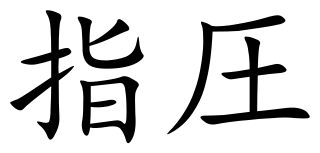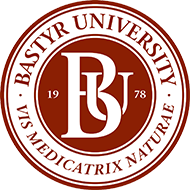Alternative medicine is any practice that aims to achieve the healing effects of medicine despite lacking biological plausibility, testability, repeatability or evidence of effectiveness. Unlike modern medicine, which employs the scientific method to test plausible therapies by way of responsible and ethical clinical trials, producing repeatable evidence of either effect or of no effect, alternative therapies reside outside of mainstream medicine and do not originate from using the scientific method, but instead rely on testimonials, anecdotes, religion, tradition, superstition, belief in supernatural "energies", pseudoscience, errors in reasoning, propaganda, fraud, or other unscientific sources. Frequently used terms for relevant practices are New Age medicine, pseudo-medicine, unorthodox medicine, holistic medicine, fringe medicine, and unconventional medicine, with little distinction from quackery.
The Alexander Technique, named after its developer Frederick Matthias Alexander (1869–1955), is an alternative therapy based on the idea that poor posture causes a range of health problems. The American National Center for Complementary and Integrative Health classifies it as a "psychological and physical" complementary approach to health when used "together with" mainstream conventional medicine.

Naturopathy, or naturopathic medicine, is a form of alternative medicine. A wide array of practices branded as "natural", "non-invasive", or promoting "self-healing" are employed by its practitioners, who are known as naturopaths. Difficult to generalize, these treatments range from the pseudoscientific and thoroughly discredited, like homeopathy, to the widely accepted, like certain forms of psychotherapy. The ideology and methods of naturopathy are based on vitalism and folk medicine rather than evidence-based medicine, although practitioners may use techniques supported by evidence. The ethics of naturopathy have been called into question by medical professionals and its practice has been characterized as quackery.

Shiatsu is a form of Japanese bodywork based on concepts in traditional Chinese medicine such as qi meridians. Having been popularized in the twentieth century by Tokujiro Namikoshi (1905–2000), shiatsu derives from the older Japanese massage modality called anma.
Rolfing is a form of alternative medicine originally developed by Ida Rolf (1896–1979) as Structural Integration. Rolfing is marketed with unproven claims of various health benefits, is recognized as pseudoscience and has been characterized as quackery. It is based on Rolf's ideas about how the human body's "energy field" can benefit when aligned with the Earth's gravitational field.

Bastyr University is a private alternative medicine university with campuses in Kenmore, Washington, and San Diego, California. Programs include naturopathy, acupuncture, Traditional Asian medicine, nutrition, herbal medicine, ayurvedic medicine, psychology, and midwifery.

Reflexology, also known as zone therapy, is an alternative medical practice involving the application of pressure to specific points on the feet, ears, and hands. This is done using thumb, finger, and hand massage techniques without the use of oil or lotion. It is based on a pseudoscientific system of zones and reflex areas that purportedly reflect an image of the body on the feet and hands, with the premise that such work on the feet and hands causes a physical change to the supposedly related areas of the body.

Quackwatch is a United States–based website, self-described as a "network of people" founded by Stephen Barrett, which aims to "combat health-related frauds, myths, fads, fallacies, and misconduct" and to focus on "quackery-related information that is difficult or impossible to get elsewhere". Since 1996 it has operated the alternative medicine watchdog website quackwatch.org, which advises the public on unproven or ineffective alternative medical remedies. The site contains articles and other information criticizing many forms of alternative medicine.

Edzard Ernst is a retired British-German academic physician and researcher specializing in the study of complementary and alternative medicine. He was Professor of Complementary Medicine at the University of Exeter, the world's first such academic position in complementary and alternative medicine.

The National University of Natural Medicine (NUNM) is a private university of naturopathic medicine, Classical Chinese medicine, and nutrition located in Portland, Oregon. The school has approximately 553 students.
Alternative veterinary medicine is the use of alternative medicine in the treatment of animals. Types alternative therapies used for veterinary treatments may include, but are not limited to, acupuncture, herbal medicine, homeopathy, ethnomedicine and chiropractic. The term includes many treatments that do not have enough evidence to support them being a standard method within many veterinary practices.

Homeopathy is fairly common in some countries while being uncommon in others. In some countries, there are no specific legal regulations concerning the use of homeopathy, while in others, licenses or degrees in conventional medicine from accredited universities are required.

The Canadian College of Naturopathic Medicine (CCNM) is a private, not-for-profit institution with two campus locations: the CCNM -Toronto Campus in Toronto, Ontario, Canada, and the CCNM -Boucher Campus in New Westminster, British Columbia, Canada.
The Ministry of Ayush, a ministry of the Government of India, is responsible for developing education, research and propagation of traditional medicine and alternative medicine systems in India. Ayush is a name devised from the names of the alternative healthcare systems covered by the ministry: ayurveda, yoga and naturopathy, Unani, Siddha, Sowa Rigpa, and homeopathy.
The Complementary and Natural Healthcare Council (CNHC) is a regulatory body in the United Kingdom which provides a voluntary register of complementary, rather than alternative medicine, therapists. The key purpose of CNHC is to act in the public interest and enable proper public accountability of the complementary therapists that it registers.

The Royal London Hospital for Integrated Medicine is a specialist alternative medicine hospital located in London, England and a part of University College London Hospitals NHS Foundation Trust. It is the largest public sector provider of complementary medicine in Europe. It is based in the Bloomsbury area of Central London, adjacent to Great Ormond Street Hospital.

Australasian College of Natural Therapies (ACNT) is an Australian private natural health college that offers both tertiary education and vocational education and training.

Southern School of Natural Therapies (SSNT) is the longest-standing institution in Natural Therapies that offers both tertiary education and vocational education and training. The School became a part of education provider Torrens University Australia in 2014, itself part of the Strategic Education, Inc. group.

The Friends of Science In Medicine (FSM) is an Australian association which supports evidence-based medicine and strongly opposes the promotion and practice of unsubstantiated therapies that lack a scientifically plausible rationale. They accomplish this by publicly raising their concerns either through direct correspondence or through media outlets. FSM was established in December 2011 by Loretta Marron, John Dwyer, Alastair MacLennan, Rob Morrison and Marcello Costa, a group of Australian biomedical scientists and clinical academics.
Alternative medicine describes any practice which aims to achieve the healing effects of medicine, but which lacks biological plausibility and is untested or untestable. Complementary medicine (CM), complementary and alternative medicine (CAM), integrated medicine or integrative medicine (IM), and holistic medicine are among many rebrandings of the same phenomenon.











